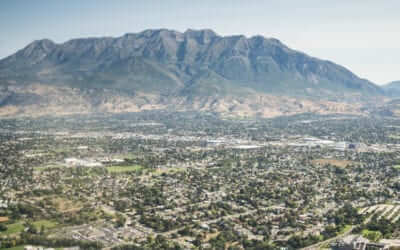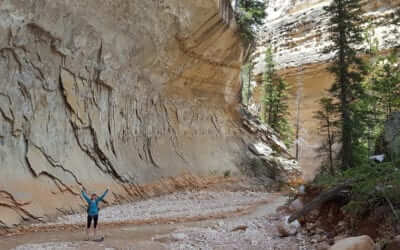© Morgan Heim
Apologizing for Science-Based Decision Making in Protected Area Management
Editorial Perspectives
December 2018 | Volume 24, Number 3
In my recent readings, I came across a statement that captured my attention. It stated that our decisions should “not solely be based on research.” By itself the statement is benign, and I acknowledge that the intent was to demonstrate the importance of considering the diversity of values, issues, perspectives, and stakeholders in a management context. However, current political trends and societal attitudes warranted further consideration of this proposition.
It is not a novel observation to identify efforts to delegitimize science and research. Political processes and public discourse have historical instances where data and methods are questioned, and scientific expertise is challenged when information conflicts with personal goals, values, or agendas. Competing scientific perspectives and conclusions are posited when issues are extremely contentious and have large-scale implications. And the protection, designation, and management of global protected areas are innately political processes. Efforts require significant discourse, coalition building, advocacy, and compromise. Substantial fiscal and human resources must be acquired for successful conservation efforts. Fundamentally, protection and management agendas are dynamic, value-laden, and contentious.
However, what strikes me in the aforementioned statement is the characterization of science and research when considered within the context of practical application and professional expertise. While bureaucracies, institutions, and agencies navigate the political, economic, and social landscapes embedded in natural resource conservation, practitioners and professionals have a more direct and intimate relationship with the issues and actions taking place on the ground. The nuances and idiosyncrasies of collaborating with diverse stakeholders, reacting to changing environmental conditions, or executing management actions with limited resources are most fully understood by these individuals. Therefore, I strongly believe that these individuals need to be unapologetic regarding the importance of science in protected area management and planning.
For myself, “manager,” “scientist,” and “ranger” have always been somewhat synonymous characterizations. Instead of specific job titles, they represent the roles and skill sets that conservation professionals embody in the practice of management. Good staff insert themselves in the scientific processes and research programs to create opportunities for success and understanding. Researchers must understand not only the landscape but also how staff operate within that landscape to achieve desirable results. We are thus all a part of research, analysis, and evaluation of the best practices and direction to achieve conservation goals.
There is a risk when we apologize for science, or its role in protected area management. To imply that it is less than an integral part in decision-making, planning, or the execution of stewardship is to weaken the foundation of best practices. Apologizing for science promotes autocratic management that can easily be commandeered by sociopolitical agendas and bureaucratic systems. It can undermine the established efforts for collaboration, public participation, and shared governance that are so vital across global protected areas. I am not naive to think that research and science is the penultimate tool in management. Nor do I believe that professional practice and expertise should be ignored or diminished. But to apologize for science and its integral role in decision-making and protected area management is to hobble global efforts for conservation and resource protection.
In this issue of IJW, we remember the wilderness giant Stewart “Brandy” Brandborg. Betsy Lindley, Maria Blevins, and Scott Williams discuss cultural meanings and management challenges for urban-proximate wilderness areas. David Cole documents the historical development and evolution of the Leave No Trace program. Finally, Crista Valentino highlights the emergence of new conservation leaders with the CoalitionWILD program.
ROBERT DVORAK is editor in chief of IJW and professor in the Department of Recreation, Parks, and Leisure Services Administration at Central Michigan University: email: dvora1rg@cmich.edu.
Read Next
Wilderness Giant: Stewart “Brandy” Brandborg Moves on at 93
Steward Brandborg was a phenomenal wilderness champion, the last wilderness advocate with ties to most of the founders of the modern wilderness movement.
Cultural Meanings and Management Challenges: High Use in Urban-Proximate Wildernesses
As outdoor recreation increases in popularity and metropolises grow larger, the issues facing urban-proximate wilderness and protected lands will continue to come to the forefront.
Measuring Forest Service Wilderness Character Trends with Partners
These partner organizations increase agency capacity, and in 2018 they helped ensure a successful official start of Forest Service Wilderness Character Monitoring implementation.



